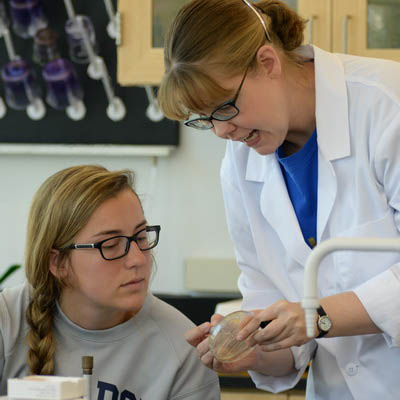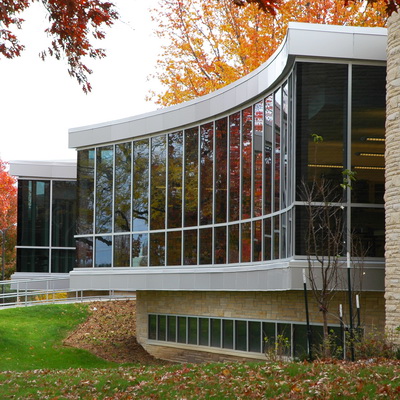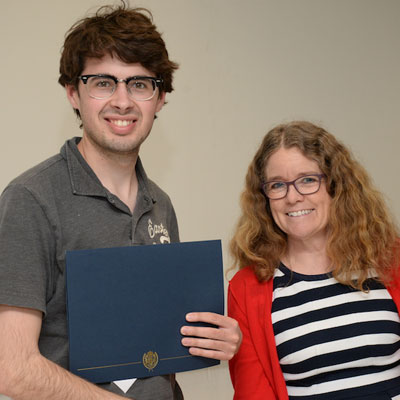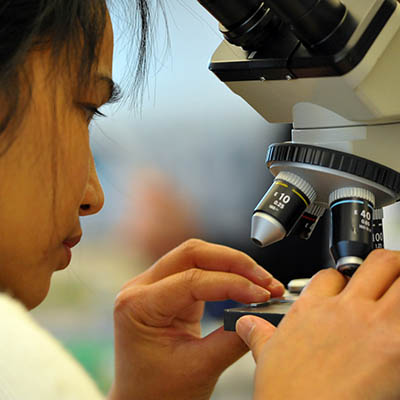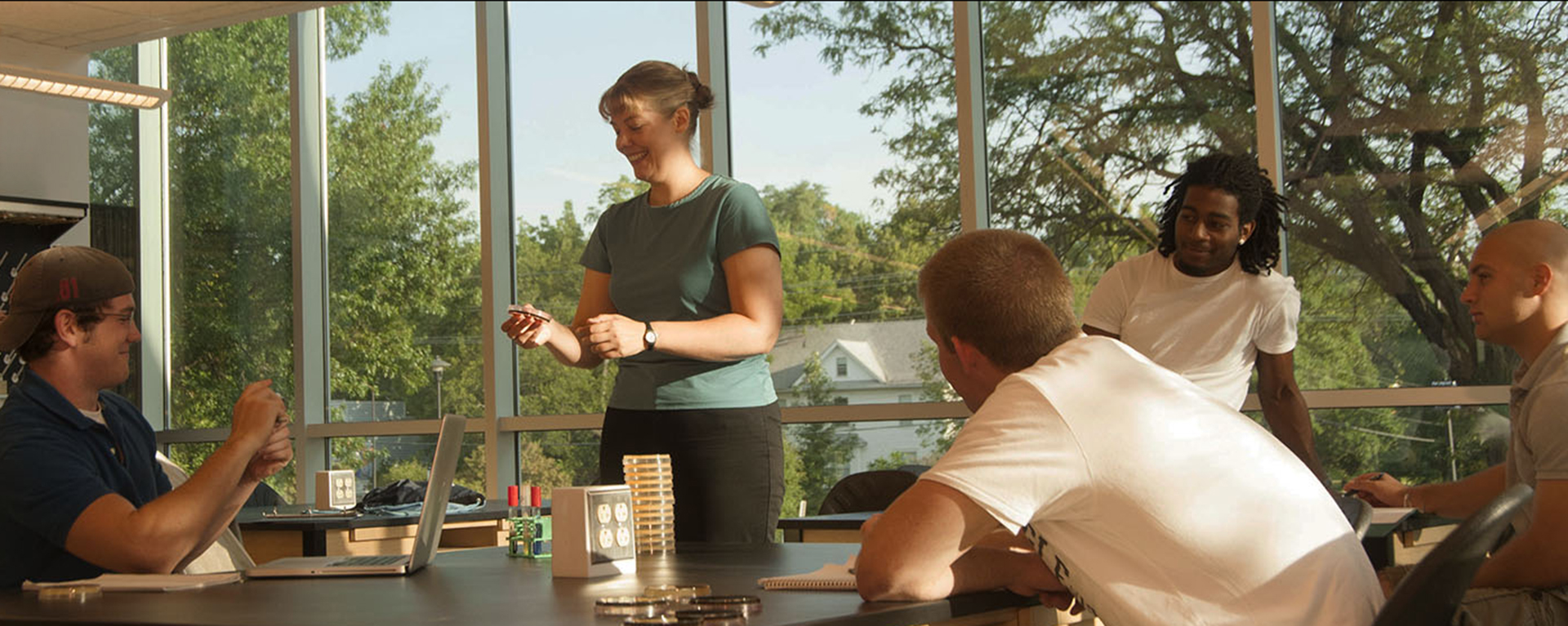
Why study Molecular Biotechnology at Washburn?
Molecular biologists and biotechnologists work at the cellular level. As a student in this program, you’ll learn with experts in the fields of cellular biology, microbiology, genetics, virology, and immunology. If you want to work in areas ranging from public health to nanotechnology, this could be the right path for you.
With a faculty mentor and advisor in your area of interest, you’ll complete at least one semester of research experience and grow your skills as a scientist, as well as a collaborative member of a lab team. Internships also are available with our many partners and an internship is required for this degree program. You’ll graduate with experience and the technical skills and knowledge you need to begin your career or continue to advanced study.
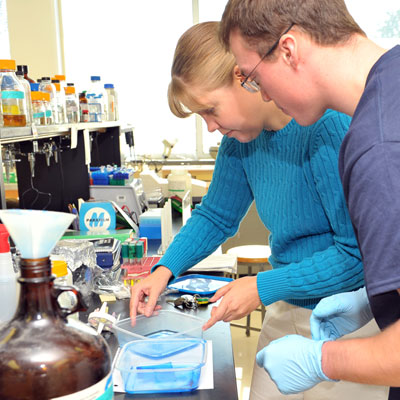
What sets Biology at Washburn apart?
- Learn from field experts not graduate students in small classes that help you thrive.
- Internships in a variety of settings will help you explore career paths prior to graduation. Recent sites include state agency labs, medical centers, and a brewery.
- Biology Department Scholarships are available to incoming and returning majors.
- Find your people on campus with one of four biology student clubs.
- Graduate with research experience guided by a faculty mentor, which could lead to a conference presentation or publication.
Admissions scholarships
Washburn University offers generous scholarships based on your interests, career aspirations, community service and academic success.Biology department scholarships
The biology department offers a variety of scholarships based on academic performance and career pursuits. New and transfer students are eligible. Applications are due early in the spring.- Admissions scholarshipsAdmissions scholarships
- Biology department scholarshipsBiology department scholarships
Tuition and fees
Courses in this program are offered at the Traditional Undergraduate rate.Financial aid
Washburn University offers generous undergraduate financial aid, including scholarships and grants.Tuition waivers
If you don’t currently live in Kansas, learn about our Tuition Waiver programs that may qualify you for in-state tuition.- Tuition and feesTuition and fees
- Financial aidFinancial aid
- Tuition waiversTuition waivers
What can you do with this degree?
Graduates of this program now work in a variety of roles within the scientific community. Among them: medical doctors, university faculty members and researchers, vaccine quality control, virology, pharmaceutical development, intellectual property attorneys, and medical technology business owners.
4-Year plan
This degree can be completed in 4 years. You'll take 34 credit hours of core biology courses and choose a concentration in a natural science to take at least 20 hours in.
- Conduct research with a faculty mentor and plan to present and/or publish your findings.
- Complete an internship. More than one internship is possible, but credit is awarded for one.
- Research grant writing practice is common and lab coursework occurs every semester to grow your skills.
Washburn’s Biology program offers specialization in:
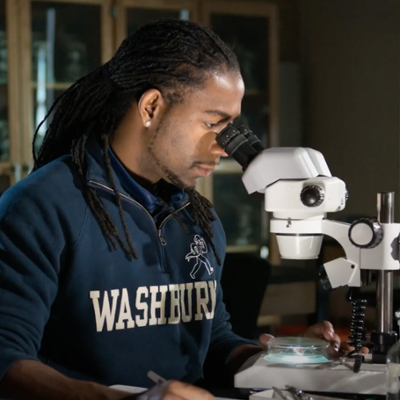
Biology
- This is right for you if you want a strong foundation in biology but aren't ready to choose a specialty area, or want to combine it with another major.
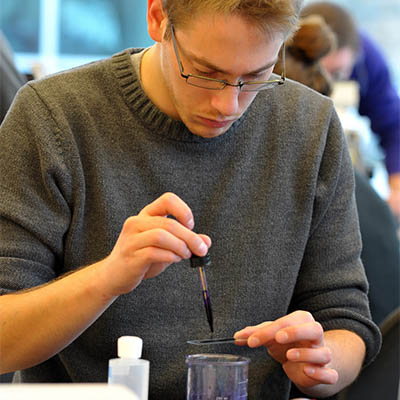
Forensic Biology
- This is right for you if you want to work as part of a crime scene processing team.

Biology Secondary Education
- This is right for you if you want to teach biology at the middle or high school level.
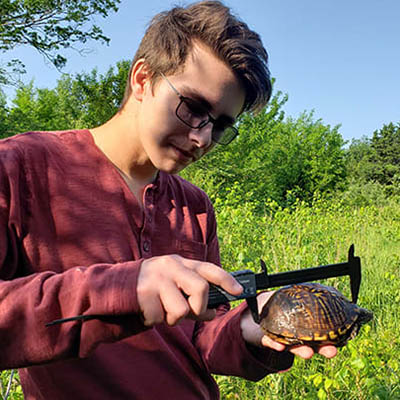
Environmental Biology
- This is right for you if you want to work with plants, animals, or insects as a conservationist, zoologist or field biologist.
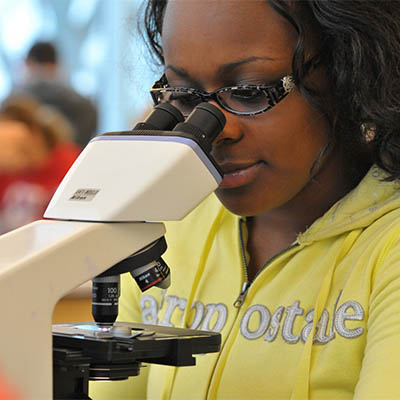
Pre-Health Professions
- Tailor your degree to prepare you for dentistry, medical, optometry, pharmacy or veterinary school.
Set for Success
Gain experience
100%
of students graduate with internship experience
Student/faculty ratio
16:1
Recent internship sites
Norsemen Brewing Co.
Kansas Department of Health and Environment
University of Kansas Medical Center
Program cost
Courses in this program are offered at the Traditional Undergraduate rate. Students in this program are eligible for scholarships and financial aid.
GET IN TOUCH WITH Department of Biology
Biology Department
Stoffer Science Hall, Room 202
1700 SW College Ave
Topeka, KS 66621
Phone & Email
785.670.2077
biology@washburn.edu


